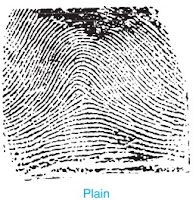5 scientific ways to become a topper
So read this post till last to overcome these problems.
1. Plan your day in advance
There is no point in studying without proper planning. This is the only difference between a topper and a runner up. So before going to sleep just make a list in your mind regarding next day tasks.
For example- 2 topics of this chapter, school assignment, physical exercise, etc, and always prioritize important tasks first then complete them in order.
For example- 2 topics of a chapter and school assignment are must but if you are running out of time, you can skip exercise today.
- Priority 1- 2 topics of chapter.
- Priority 2- school assignment.
- Priority 3- physical exercise.
2. No need to study 2 hours in one go
Okay, you have
planned your day, but to study productively, you have to study
for small intervals. According to many scientific studies, our brain
can keep attention only for 45 minutes, after that second thoughts
will start coming in our mind and we can't keep our attention.
So
study a topic for 45 minutes and then take a quick 15 minutes break (drink water, eat, do a short walk, etc). Again repeat this cycle until
you get exhausted and then take a healthy 1-hour break.
3. Write! Write! Write!
When you read a topic and feel “okay I will remember it, no need to write” then it is a trap, don't fall in it otherwise, you will regret when question paper comes in your hands and you will not able to recall it.
Much research shows writing is 10X times effective than reading. If you write something, you will be able to recall it for years. So read and Write! Write! Write!
4. Manage your mobile phone
90% readers- “ I tried technique no. 2 but guess what, my mobile phone came in my way and the 15 minutes break turns into 2 hours ”.
This is a major problem with many students that their will power is very low and frankly speaking there is no cure for mobile addiction except yourself.
Ask yourself
- Does this 6-inch box is bigger than my dream?
- Is it worth it to kill my time for just 2 hours of entertainment?
5. Not necessary to wake up in the early morning
Do your parents shout on you for not waking up in the early morning then share this post with them. According to the study of New York University and University of Chicago, it is found that our body needs only 8 hours of sleep. So you have to adjust yourself accordingly.
For example-
- If you sleep at 10:00 PM then wake up at 6:00 AM
- If you sleep at midnight then wake up at 8:00 AM
We know that it will be difficult in the initial stage but your body will adjust within 7 days. Narendra Modi, Tim cook, Marissa Mayer sleeps only 4 hours a day then why you can't ?
Bonus Tip: Learn from failures
Never feel low when you met failures in your life, learn from them ,and move on. Did you hear someone saying “ I sleep 10 hours, eat junk food, study just before exams, use my phone whenever I want and today I am the most successful man ” NO Nah! Then how can you think you can become successful without hard work.
Develop yourself to
that level “ If I can't do this work, nobody else can ”
Cheers,
Cheers,
Sciencedoze.com









